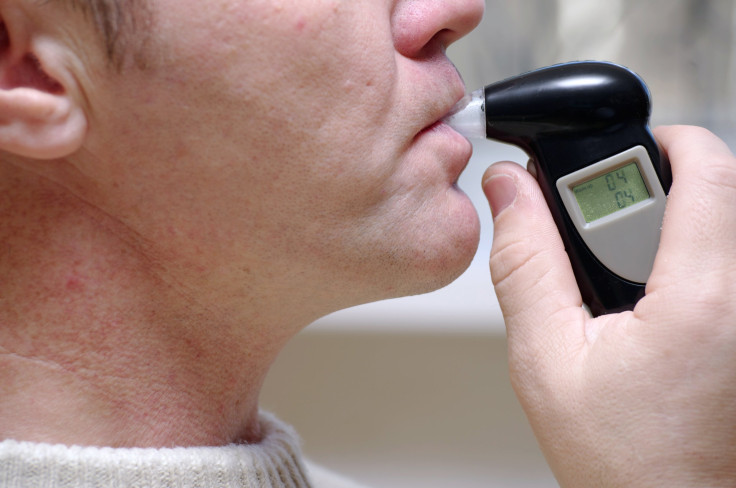Cancer Symptoms: Scientists Develop New Technology To Diagnose Stomach Cancer Using Breathalyzer

Your breath may soon offer valuable clues about your health. In a new study published in the journal Gut, researchers have developed a technology known as nanoarray analysis that can detect tiny changes in exhaled breath — like differences in the levels of compounds emitted by cells. The breath, analyzed by this device, could provide clues to the development of stomach cancer and other stomach problems and lesions.
The researchers hope that this new breathalyzer-like device could aid in diagnosing gastric cancer earlier on, as well as monitoring people who are at a higher risk of developing the disease.
“The attraction of this test lies in its non-invasiveness, ease of use (therefore high compliance would be expected), rapid predictiveness, insensitivity to confounding factors, and potentially low cost,” the authors wrote.
In the study, researchers gathered two breath samples from 484 people after they refrained from smoking for three hours, and eating for 12 hours. 99 percent of the participants had already been diagnosed with stomach cancer, but not yet treated with chemotherapy or radiotherapy; the researchers tested them with both the GCMS technique, which measures volatile organic compounds (VOCs), and the nanoarray analysis. The GCMS found that both cancer patients and healthy patients had different “breath prints.” Eight VOCs showed significant differences in cancer patients. The levels also different based on the stage of cancer each patient was in, which would allow scientists to better diagnose them.
"Most patients with gastric cancer in Western countries are diagnosed at advanced stages when the survival chances are relatively poor," the authors wrote. "Detection of precancerous lesions would allow surveillance to be performed, making early detection of the transformation to cancer possible. Highly accurate non-invasive screening methods for gastric cancer and related precancerous lesions are lacking."
Detecting cancer by breath isn’t new. Last year, researchers at the University of Colorado developed a portable breath test that could detect both lung cancer and chronic pulmonary obstructive disease (COPD) based on volatile organic compounds exhaled from the lungs. These small particles are often tiny clues and signs of diseases, making the breath an easy pathway to target for diagnoses. Other researchers developed a breath test for breast cancer.
Another recent study carried out by Nico de Rooij and a team of researchers at SAMLAB in Switzerland found that a new device could distinguish the breath of a person with head and neck cancer.
All of this research has stemmed from the fact that when you breathe out, you’re not only exhaling air; it’s full of volatile organic compounds, which are often telling of the person’s health. Since the metabolism of cancer cells is different from healthy cells, they release different particles — and thus leave their mark on your breath. So, in a way, there is such a thing as “cancer breath,” though a very sensitive device is needed to detect it.
And in the advent of using smartphones for medical purposes, a cancer breathalyzer on your smartphone may indeed be a possibility in the future, along with blood tests and screenings for other chronic diseases (which are being worked on). The researchers are currently working on a big trial with thousands of patients across Europe to further test the device in diagnosing stomach cancer.
Source: Amal H, Leja M, Funka K, Skapars R, Sivins A, Ancans G. Detection of precancerous gastric lesions and gastric cancer through exhaled breath. Gut. 2015.
Published by Medicaldaily.com



























